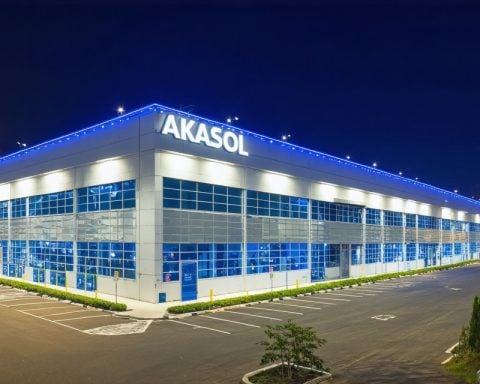New Jersey officials are pressing the pause button on electric truck regulations. Recently, a key Assembly committee in the state has shown strong support for postponing the Advanced Clean Trucks regulations by two years. This decision reflects a growing consensus among state legislators who believe that a delay could allow for better preparation and support for the transition to electric vehicles.
As the demand for sustainable transportation increases, this move raises questions about New Jersey’s commitment to climate initiatives. The Advanced Clean Trucks regulations are designed to significantly reduce greenhouse gas emissions by promoting the use of electric trucks. However, legislators argue that a phased approach could benefit stakeholders.
In addition to the truck mandate delay, an influential bill aimed at obtaining climate damages from fossil fuel companies has also received initial approval. This dual focus showcases New Jersey’s evolving stance on environmental responsibility and corporate accountability.
The combination of these developments highlights a critical juncture for New Jersey’s environmental policy. While some advocate for immediate action to curb carbon emissions, others caution that a well-thought-out implementation can lead to more sustainable outcomes in the long term. As the state navigates these complex issues, stakeholders are left to consider the balance between urgency and preparedness in combating climate change.
New Jersey Delays Electric Truck Regulations: Implications and Considerations
Introduction
New Jersey is at a critical crossroads regarding its environmental policies, particularly concerning the regulation of electric trucks. Recent developments indicate that state officials are postponing the implementation of the Advanced Clean Trucks regulations by two years. This decision reflects a growing debate over the best approach to achieve sustainable transportation goals amid rising environmental concerns.
Overview of the Delay
The Advanced Clean Trucks regulations aim to significantly reduce greenhouse gas emissions associated with freight transportation by promoting electric trucks. However, a key Assembly committee in New Jersey has shown strong support for delaying these regulations. Proponents of the delay argue that more time is needed for stakeholders, including manufacturers and local businesses, to prepare for the transition.
FAQ: Key Questions About the Delay
Q: What are the Advanced Clean Trucks regulations?
A: These regulations are designed to reduce carbon emissions from the trucking industry by requiring an increased number of electric trucks on the roads.
Q: Why is New Jersey delaying these regulations?
A: Legislators believe that a two-year pause allows for better preparation among stakeholders, ensuring a smoother transition to electric vehicles.
Q: What is the potential impact of this delay?
A: The delay may slow the state’s progress toward climate goals but could lead to more effective long-term implementation.
Pros and Cons of the Delay
Pros:
– Improved Readiness: Stakeholders can better prepare for the technological and infrastructural changes required for electric trucks.
– Economic Considerations: Businesses can strategize and adjust to the changing market demands without immediate pressure.
Cons:
– Environmental Impact: The delay may hinder immediate reductions in greenhouse gas emissions, potentially affecting New Jersey’s climate goals.
– Missed Opportunities: Lower urgency may lead to a loss of momentum in transitioning to sustainable energy sources.
Legislative Developments
In addition to the pause on electric truck regulations, New Jersey legislators are also moving forward with a bill aiming to hold fossil fuel companies accountable for climate damages. This initiative highlights the state’s commitment to environmental responsibility while seeking to balance corporate accountability alongside progressive climate policies.
Market Trends and Insights
As the demand for electric vehicles (EVs) and sustainable transportation grows nationwide, New Jersey’s decisions could influence market trends. Other states are watching closely, as a successful transition in New Jersey could serve as a model for similar initiatives elsewhere.
Future Predictions
The decision to delay could have far-reaching implications for New Jersey’s electric vehicle market. Experts predict that with the right preparation and infrastructure in place, New Jersey could emerge as a leader in sustainable transportation within a few years. Furthermore, public sentiment appears to be shifting towards urgent climate action, and any future inaction could face serious public backlash.
Conclusion
New Jersey’s decision to delay the Advanced Clean Trucks regulations marks a pivotal moment in its approach to environmental policy. As state officials and stakeholders navigate the complexities of this transition, the balance between urgency and preparedness will be crucial. The outcomes of these regulatory decisions will not only shape New Jersey’s transportation landscape but also impact its broader climate initiatives.
For more information on New Jersey’s environmental policies and projects, visit the official New Jersey government website.


















